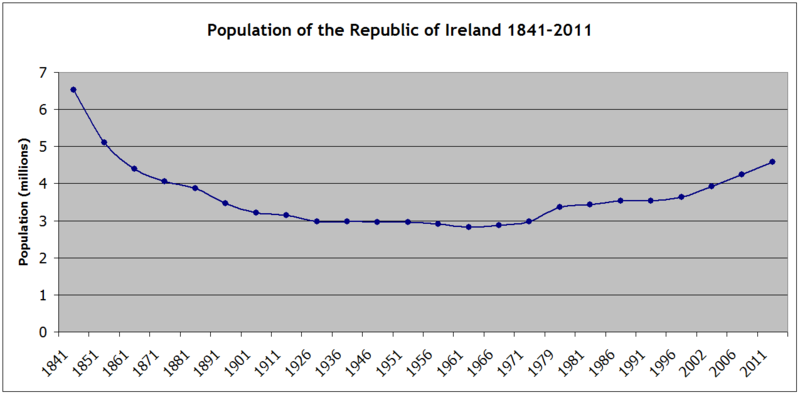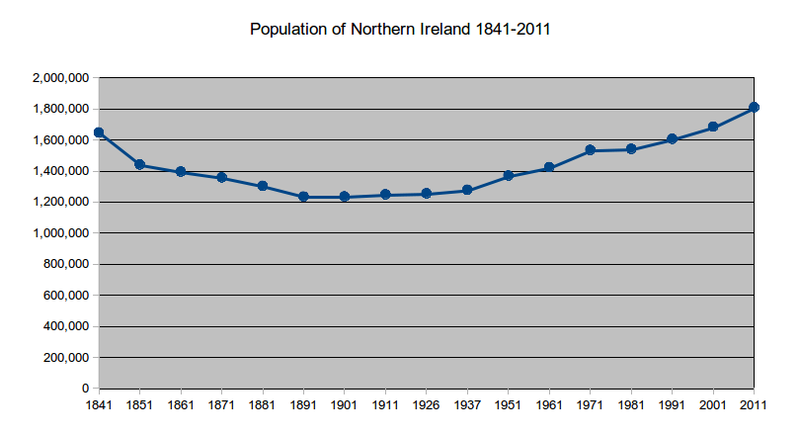With a POD of 1851 (the first census taken after the Great Famine) what is the highest plausible population of Ireland in 2014 and how would it reach that level?
This graph shows the historical fall (and eventually growth) of the population in the modern day territory of the Republic:

And for what is now Northern Ireland:

This graph shows the historical fall (and eventually growth) of the population in the modern day territory of the Republic:
And for what is now Northern Ireland:
